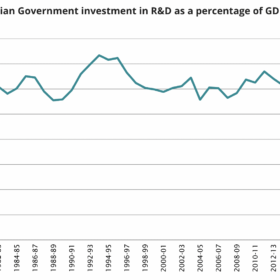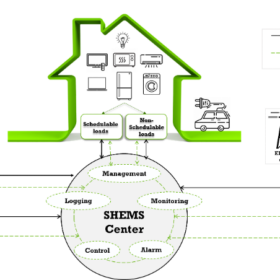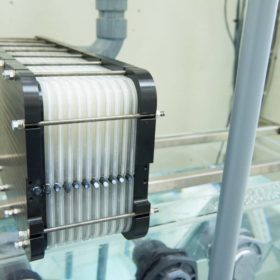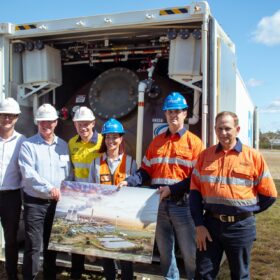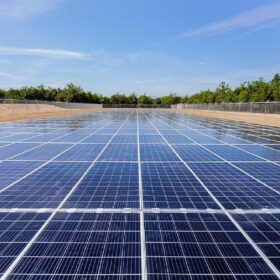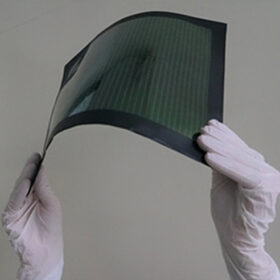Jaguar building large-scale storage system with second-life EV batteries
Jaguar Land Rover and Wykes Engineering are building a 2.5 MWh storage system with electric-vehicle batteries taken from Jaguar I-PACE cars. The large-scale system will store wind and solar at an undisclosed location in the United Kingdom.
Australia’s R&D spend continues to shrink despite global clean energy race intensifying
Australia continues to rank poorly for investment in science and research, spending just 1.68% of its GDP – well below the OECD average. This underinvestment is a growing problem for the clean energy industry, with fellow nations actively poaching innovations to capture future manufacturing markets.
Rewiring WA: state to receive $3 billion for transmission
Australia’s federal government has allocated $3 billion (USD 1.93 billion) from its Rewiring the Nation program to upgrade Western Australia’s two islanded grids, which lag the eastern states in their renewable energy share.
Energy management system to combine residential PV with gravity storage
Researchers in Morocco have created a new energy management system that allows the combination of rooftop PV with gravity storage. The proposed system is reportedly able to perform smart energy distribution within a household while also lowering electricity costs.
Study finds redesigned zinc-air batteries a ‘better alternative’ to lithium
Researchers at Edith Cowan University have redesigned zinc-air batteries to an extent where the team’s study found the technology to be preferable to lithium-ion batteries, even for electric vehicles.
20 iron flow batteries delivered to Queensland coal plant, part of new technology testing hub
Queensland iron flow battery company Energy Storage Industries is delivering 1 MW/10 MWh of flow battery energy storage to Queensland’s Stanwell Power Station just outside of Rockhampton. The flow batteries are part of a new government-run clean energy testing ‘hub’ at Rockhampton, which will also include hydrogen and workforce training programs.
Driving down cost of solar key to unlocking green hydrogen future
Reducing the cost of solar electricity will be the key to unlocking the next chapter of the energy transition: a green hydrogen economy, according to Jim Tyler, CEO of solar technology company Erthos.
Toshiba claims 16.6% efficiency for polymer film-based large-area perovskite solar module
Japanese electronics giant, Toshiba, is continuing to improve the performance of its perovskite solar cell technology.
Australian shipbuilder to deliver world’s largest all-electric ferry
Australian manufacturer Incat Tasmania is building the world’s largest all-electric ship at its yards in Hobart with the 130-metre-long vessel to be fitted with a 40 MWh battery energy storage system that will power a series of electric propulsion system and waterjets.
CSIRO startup pursues hydrogen tech for heavy industry
Australia’s national science agency has teamed with corporate advisor RFC Ambrian to form a new company to commercialise electrolysis technology that the CSIRO said can produce hydrogen with 30% less electricity than existing alkaline and polymer electrolyte membrane technologies.

